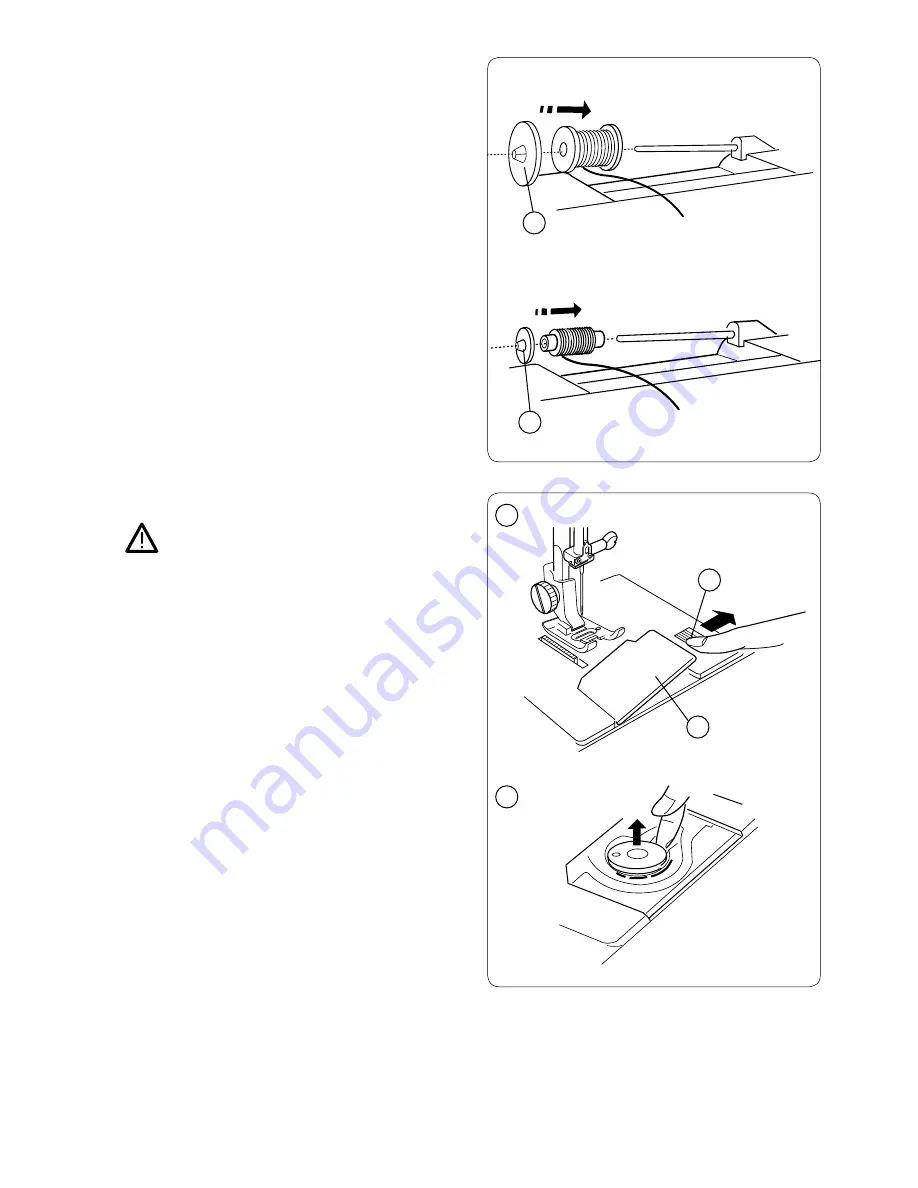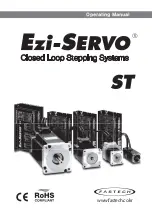
1
2
b
2
1
a
Getting Ready to Sew
– 13
PLaCinG the thread sPooL
on the sPooL Pin
Place the thread spool on the spool pin
with the thread coming off as illustrated.
With large thread spools, the large
holder is placed in front of the thread. If
you use narrow thread spools, the small
holder is placed in front of the thread.
1.
Large spool holder
2.
Small spool holder
reMovinG the BoBBin
Turn off the power switch.
1.
Push the bobbin cover release
button to the right and remove the
cover.
a.
Release button
b.
Bobbin cover plate
2.
Lift out the bobbin.
















































